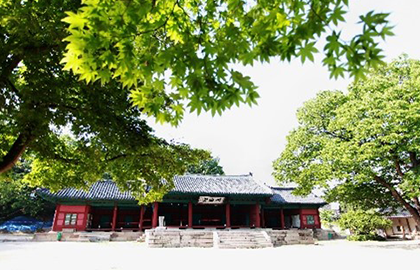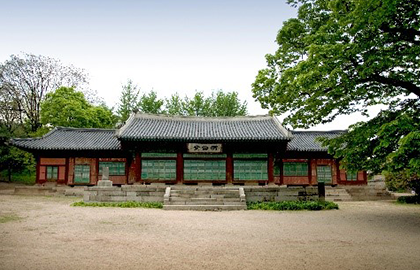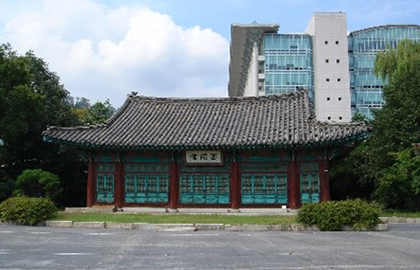





Sungkyunkwan University was founded at the beginning of the Joseon Dynasty in 1398 as the highest national educational institute in the early years of the Joseon Dynasty in Korea. As the oldest university in East Asia, it has fostered leaders of our society for over 600 years.
'SKKU's main ideology, 수기치인 (修己治人) pronounced 'Su-Gi-Chi-In', teaches that SKKU students strive to perfect themselves as leaders and contribute to our society.
This ideology is the fundamental principle by which SKKU brought up leaders of our society for over 600 years, thus contributing to evolution of our society. Sungkyunkwan University,' continuously strives to integrate its founding tradition philosophy with the modern technology in order with a view to cultivating global graduate’ s talents who will lead the 21st century.
Old Sungkyunkwan was founded over 600 years ago by royal decree to promote education the scholarship in Confucianism. As nation's highest educational institution, Old Sungkyunkwan went through vicissitudes with the country it served over the centuries.
Though a long history alone cannot guarantee the excellence of an institution, the rich culture, which exudes from a long tradition, is surely a unique and valuable asset of the University. What the University has achieved in the past fifty years meets and exceeds that of the preceding history. We take pride in the University's innovative spirit; as a result of the long efforts to place natural sciences on an equal footing with our strong foundation in humanities, we now operate two campuses: the Humanities and Social Sciences Campus and the Natural Sciences Campus.
Based on a highly successful partnership with Samsung which has generously funded several core initiatives, the University has been rapidly developing and prospering since 1996.
The deep roots of the University are so strongly entwined with Seoul that we cannot describe the University in isolation from the city. Like the University, Seoul, the heart of Korea, is the center of Korea’s remarkable economic growth over the past 40 years with its old unique tradition and newly innovated modernity. Seoul was the seat of government as early as the Baekje Kingdom, more than over 1,500 years. Even so, the city had its real genesis with the establishment of the Joseon Dynasty in 1392, when it became the capital city. Seoul is one of those cities which maintain the architectural beauty of the past in the midst of modern development. Seoul’s architectural symbols of the past have been carefully preserved to maintain a link between the city of yesterday and the thriving composition city of today.
As the cultural, economic, and political center of the nation, Seoul provides infinite opportunities for research. University students reap benefits from the city’s resources, and are able to put into practice what they have learned in the classroom. The University is located inside the city walls, within the original capital of Joseon. Located on the original Sungkyunkwan site, the Humanities and Social Sciences Campus is spread over a hill looking down on Jongmyo Royal Shrine, which has been designated by UNESCO as a World Cultural Heritage Site. Just like Seoul, the University grew rapidly, and the expansion called for building a new campus. The original site was preserved for the Humanities and Social Sciences Campus, while the expanding science programs were moved to a new campus in Suwon. Currently, 6 schools and 3 colleges and many graduate schools call the Humanities and Social Sciences Campus their home. To commemorate the founding philosophy of the University, the 600th Anniversary Building which houses the Academy of East Asian Studies was constructed on this campus. This new facility has a floor space of 31,930 square meters with four underground levels and six ground levels.


